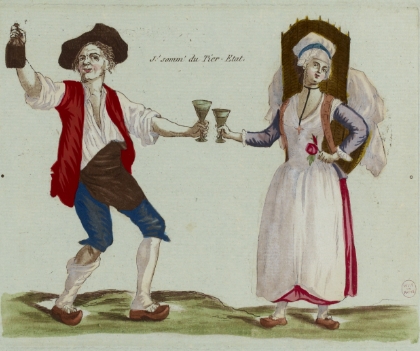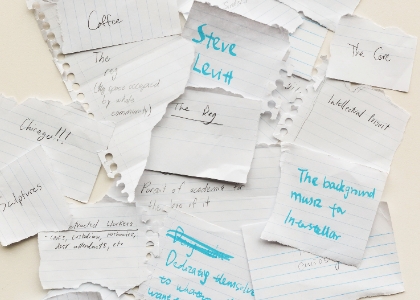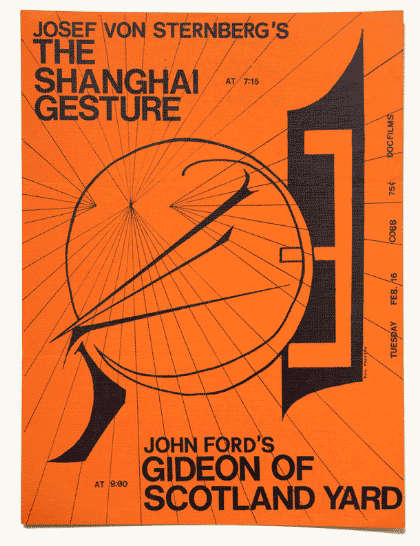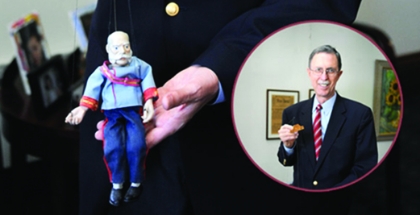|
|
|
|
|
|
|
|
|
|
|
|
| Flashback: Dean Boyer teaches Western Civ in 2005 |
|
| |
|
|
|
| Dean John W. Boyer, AM’69, PhD’75, leading his annual South Side history tour, and appearing, in LEGO form, in an Admissions video. This article about his intensive Summer Quarter course originally appeared in the October/05 issue of the University of Chicago Magazine. |
|
| |
|
| It’s the second day of Western Civilization III and John W. Boyer, AM’69, PhD’75, looks annoyed. Just as class was due to start in Cobb 115, he was asked to change rooms. “Good morning, somewhat belatedly,” says Boyer, the Martin A. Ryerson Distinguished Service Professor of History and Dean of the College, as the students settle in across the hall. |
|
| |
|
| It’s only 9:05, but with a topic like “The Old Regime and the French Revolution” to cover in less than three hours, even five minutes is too much to lose. Asked to rank “the big events of world history,” Boyer says, most professional historians would slot the French Revolution into the top ten, if not the top five. To prepare for today’s class, the students plowed through 178 pages of dense primary documents. |
|
| |
|
| “The challenge of coping with change is not an easy one,” Boyer says. “Take, for example, this university. Universities are among the most conservative of beasts.” Even professors with radical politics outside the academy tend to be “deeply conservative” inside it, subscribing to the common creed, “‘that’s the way we’ve always done things.’” |
|
| |
|
| Why did the French Revolution, with its “terribly frightening” changes, occur when it did? By the late 1780s, the “yawning budget deficit” meant the French simply could not run their government—and weak, indecisive Louis XVI was no help. “Many of you will become leaders in your various fields,” Boyer says—his first of several fatherly pep talks. “A leader is supposed to be the last person to lose his head. He’s supposed to sit there coolly. France did not have a leader who could do that.” |
|
| |
|
| After the break, the discussion turns to the National Assembly Decrees of August 10 and 11, 1789. In a frenzied session on August 4, Boyer explains, the assembly essentially abolished the entire feudal regime—but the first documents didn’t appear until a week later. |
|
| |
|
|
|
| “The hangover effect,” Boyer explains. “You look at yourself in the mirror the next morning and ask yourself, ‘What did I do? Why did I do that? I’ll never do that again.’” The students snicker. “I’ve never experienced that myself,” Boyer deadpans, “but I’ve heard about it.” |
|
| |
|
|
|
| Did you take Western Civ with Dean Boyer, on campus or in Vienna? Did you cycle along on his South Side history tour? Wear a mustache on Dean Boyer Appreciation Day? The College is compiling stories and photos from Boyer’s 31-year tenure as dean of the College. Please share your decanal memories. |
|
| |
|
|
|
|
|
|
|
| “What are the qualities of a UChicagoan?” |
|
| |
|
| That was the lead question of an online survey designed by student interns working on Exemplary, a College-sponsored public art project to honor people who exemplify UChicago. |
|
| |
|
| The options on the survey: |
|
| |
|
| |
|
Intellectual
Inquisitive
Quirky
Curious
Diverse
Passionate
“Life of the Grind”
Inspirational
Worth imitating
Lifelong scholarship
Free speech
Eloquent
Maroon pride (against Northwestern/Harvard?)
Where fun goes to “hype”
Econ bro
|
|
|
| |
|
| The survey also included a list of 20 exemplary alumni and faculty, past and present. Survey respondents were asked to choose three to five. |
|
| |
|
| Alumni included dancer-anthropologist Katherine Dunham, PhB’36; composer Philip Glass, AB’56; baseball general manager Kim Ng, AB’90; astronomer Carl Sagan, AB’54, SB’55, SM’56, PhD’60; Vermont senator Bernie Sanders, AB’64; and writer Susan Sontag, AB’51. |
|
| |
|
|
|
| Possible choices for exemplary alumni to honor: Sontag, Sagan, and Dunham. |
|
| |
|
| Faculty choices skewed toward the famous and the past: philosopher Hannah Arendt, physicist Enrico Fermi, meteorologist Tetsuya (“Ted”) Fujita, former president Barack Obama. |
|
| |
|
| Two of the options—economist Milton Friedman, AM’33, and former UChicago president Edward Levi, LAB’28, PhB’32, JD’35—fell into both categories. There was also a space to write someone in. |
|
| |
|
|
|
|
|
| The fast and the studious |
|
| |
|
|
|
| Race car driver Andre Castro, AB’22. |
|
| |
|
| Q. How does racing compare with normal street driving? |
|
| |
|
| A. It’s more dangerous to be on the road than to be in a race car, to be honest. You’re not out there with trained professionals. I’m from New York City. I’m glad I can take the train. |
|
| |
|
|
|
|
|
|
|
|
|
| Doc Films, which celebrated its 90th anniversary in 2022, has produced numerous memorable posters over the decades. |
|
| |
|
| Alumni: Do you remember the first movie you saw at Doc? And did you see it at Max Palevsky for $5 or in Cobb Hall for 75 cents? Did you work in the projection booth or as a programmer or pösternaut? Send your memories to collegereview@uchicago.edu. |
|
| |
|
|
|
|
|
| Previously in College Review |
|
| |
|
|
|
|
|
|
|
|
|
|
|
| The College Review, edited by Carrie Golus, AB’91, AM’93, is brought to you by Alumni Relations and Development and the College. What would you like to see in future issues? Send your suggestions to collegereview@uchicago.edu. |
|
| |
|
|
|
|
|
|
|
|
|
| (2) John Zich, Everett Collection, NASA/JPL–Caltech, Library of Congress |
|
| |
|
| (3) Andre Castro/Laura Lorenz |
|
| |
|
|
|






